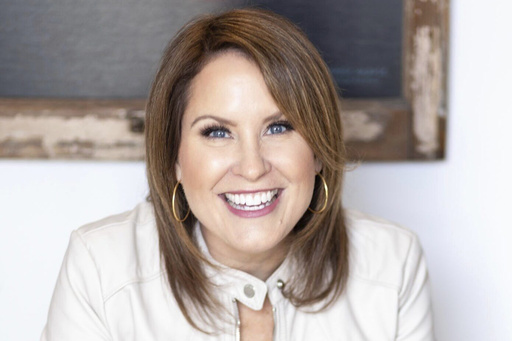
MADISON, Wis. — The competition for the position of Wisconsin’s chief education official is heating up, with the Democratic incumbent seeking reelection facing off against two challengers: a Republican-backed advocate for school choice and a rural school superintendent who has attracted backing from public school administrators and others concerned with educational policy.
The primary election set for Tuesday will determine which two candidates will progress to the general election on April 1.
Wisconsin stands out as the only state where voters have the power to elect their top education leader, with no state board of education to oversee educational policies. This grants significant authority to the individual in charge of the Department of Public Instruction, allowing them to shape educational policies, allocate funding to schools, and manage teacher licensing.
The winner will also have the task of navigating Wisconsin’s educational policies in relation to the Trump administration, which aims to dismantle the federal Department of Education—an agency responsible for about 14% of the funding for public schools across the nation, with an annual budget of $79 billion.
Although this race operates under a nonpartisan format, the candidates are broadly supported along party lines. On one side, the Democrats and advocates for increased public school funding rally behind the incumbent, while on the opposite side, Republicans and conservatives promote policies favoring private school vouchers and other choice programs.
Incumbent Jill Underly was first elected in 2021, buoyed by the backing of the Democratic Party and teacher unions. However, she finds herself challenged on her left by Sauk Prairie Superintendent Jeff Wright, a two-time Democratic candidate for the Assembly, and on her right by Brittany Kinser, a proponent of privatizing education with experience in managing charter school advocacy.
Kinser identifies herself as a moderate Democrat, describing her stance with the “Blue Dog Democrat” label, referring to more conservative voting patterns within the party. She has gained substantial support from Republicans, including a $100,000 donation from the Wisconsin Republican Party and maximum individual donations from key GOP donors.
Meanwhile, Underly has received endorsements from various Democratic figures and groups, including a $50,000 benefit from the Wisconsin Democratic Party. In an unexpected turn, the political action committee of the Wisconsin Education Association Council expressed its preference for Wright, who also received endorsements from other influential educational associations.
Key concerns among voters center around student achievement and school funding. Kinser’s previously expired state administrator license has raised questions about her qualifications, which both Underly and Wright have pointed out. Kinser dismisses this as a distraction, highlighting her extensive experience within the education sector.
Underly aims to utilize Wisconsin’s projected $4 billion surplus to greatly boost school funding, yet faces opposition from the Republican-controlled Legislature. Additionally, she revised the state’s achievement standards, claiming they best reflect current learning, although this has faced bipartisan criticism, even from some within her own party.
Wright and Kinser argue that the new standards lower expectations for students, complicating performance assessments for schools and districts. Kinser’s campaign is centered on enhancing educational outcomes, advocating support for a legislation reestablishing prior standards. The state continues grappling with significant educational disparities, particularly between Black and white students.
Underly has championed her experience as an asset in handling the challenges posed by the Trump administration’s policies. Additionally, she has publicly criticized the former president’s decision to freeze federal assistance for Head Start programs, despite skipping a candidate forum with Wright and Kinser.
In an effort to attract supporters away from Underly, Wright has aired ads blaming her for the decline in Wisconsin schools. Although he doesn’t support the full $4 billion funding Underly has requested, he does favor increased financial support to prevent districts from burdening taxpayers for property tax hikes. He also criticized Underly’s management and the deteriorating relationship between the education department and the Legislature.
Wright is a proponent of repealing Act 10, a 2011 law that curbed collective bargaining rights for teachers and other public sector employees. Underly has similarly described the law as unconstitutional, while Kinser opposes its repeal. Legal challenges to the law are currently under review by the Wisconsin Supreme Court.
Despite being overshadowed by the highly publicized Wisconsin Supreme Court race, the contest for the state’s education chief remains crucial, with implications for educational policies state-wide. The outcome of both elections is set to shape the future of Wisconsin’s educational landscape.

